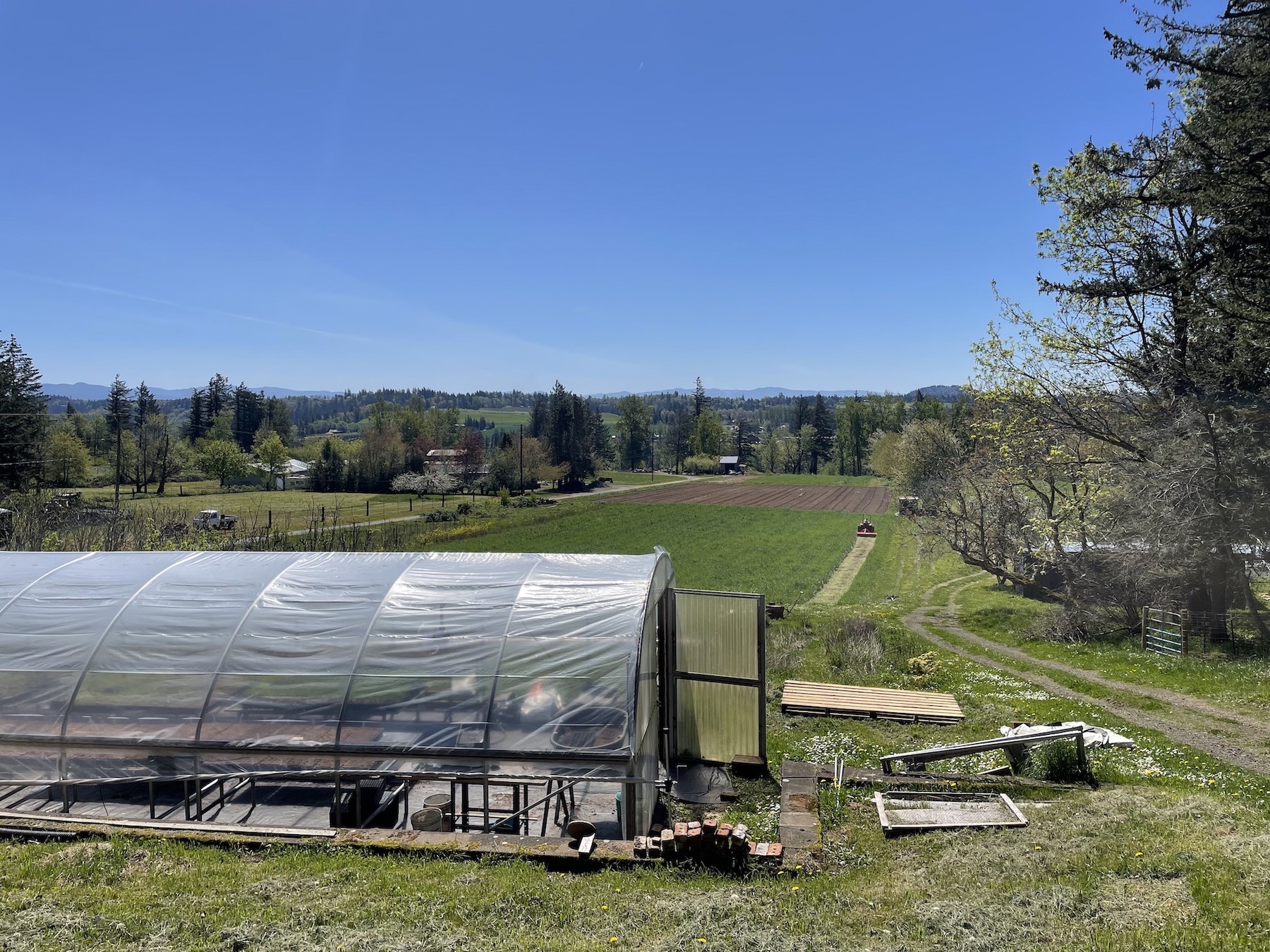Two Republican state senators attempt to kill bipartisan proposal to raise lodging tax for wildlife
Published 6:35 am Friday, June 27, 2025

- A breeding female of the Wenaha Pack is captured on remote camera on U.S. Forest Service land in northern Wallowa County in December, 2018. An increase to the state’s Transient Lodging Tax would pay for wildlife conservation and the state’s wolf predation fund, meant to compensate financially ranchers who lose livestock to wolf attacks. (Oregon Department of Fish and Wildlife)
Raising the state hotel tax by 1.25 percentage points could send millions to the Fish and Wildlife Department, but the Republican senators say it will hurt the tourism industry
A bipartisan proposal to raise a state hotel tax by 1.25 percentage points to fund wildlife conservation could be killed by two Oregon Senate Republicans.
House Bill 2977 would raise the transient lodging tax — currently 1.5% of the amount charged for occupying a hotel, short-term rentals like Airbnbs, and tent and RV camping sites — to 2.75%, to help pay for species and habitat conservation projects at the Oregon Department of Fish and Wildlife that currently get no consistent, dedicated funding.
Some money would also go to the Oregon Department of Justice for anti-poaching enforcement, some would go to the Oregon Department of Agriculture to stop and prevent invasive species and some to the state’s wolf predation fund.
The bill, which could raise an additional $42 million a year, already passed the Oregon House of Representatives on a 36-15 vote, with five Republicans voting with Democrats. It also cleared the Senate Committee on Rules, its last step before a vote on the Senate floor.
But a late amendment proposed Thursday in the form of a minority report from Senate Minority Leader Daniel Bonham, R-The Dalles, and Sen. Cedric Hayden, R-Fall Creek, could kill the bill.
A minority report, a sort of counterproposal to a bill a lawmaker opposes, has the effect of stalling the bill process, forcing at least one day to pass before the bill is read on the floor and, in the Senate, up to five days.
Most of the time, that delay doesn’t mean much. But because the legislative session must end by Sunday and lawmakers hope to leave earlier, any delays in the last days of session can doom a bill without a vote.
Money for horses, primates
Bonham’s and Hayden’s proposal scraps House Bill 2977 entirely and instead proposes sending $14 million from the state’s general fund to horse, primate and county animal rescues and the state’s wolf predation fund that pays ranchers who lose livestock to wolves.
“I am not interested in passing a tax increase on Oregon’s restaurants and lodging businesses to fund what should be a shared general fund effort,” Hayden said in an email. “There are no success metrics in the bill that I can see — just a plan to dump more tax dollars into an amorphous fund so legislators can say they did something to help animals.”
One of the bill’s early and chief sponsors, Rep. Ken Helm, D-Beaverton, said Hayden and Bonham should have submitted a bill to fund those causes earlier in the session, not in the last three days.
“It shows how unserious the amendment is,” Helm said.
False information
Helm said false information provided by the CEO of the Oregon Restaurant & Lodging Association, and uncorrected by the association’s lobbyist Bill Perry, is further stymying the bill’s passage.
The association has opposed and lobbied against each of the six bills proposed this session to increase or redirect some of the transient lodging tax.
Brandt claimed in oral testimony June 24 that Helm had not tried to meet with him or members of the association. Helm refuted that, providing the committee with emails and summaries of meetings he and his team had with members and Perry and others between 2020 and 2025. He asked Perry, who was in the hearing where Brandt claimed Helm had not tried to meet with the group, to correct Brandt and set the record straight.
Helm also wrote to Perry Thursday to ask that he correct the record, he said, but did not hear back. Perry said in a text he forwarded Helm’s note to leaders at the Restaurant & Lodging Association.
State Rep. Cyrus Javadi, R-Tillamook, said he also took issue with an interaction he had with Perry in the current session over a bill related to the transient lodging tax, after Javadi sent out his constituent newsletter advocating for passage of House Bill 3556, a bill Javadi sponsored to redirect some hotel tax dollars to county emergency and public services. Javadi said Perry came to his office and said he’d been “sent to beat the s— out of me by his organization. And I told him that was unacceptable and to leave.”
Javadi said Perry apologized the next day, and the bill ultimately failed to pass out of committee in March. In a text Thursday evening Perry said the Capital Chronicle should direct inquiries to the Restaurant & Lodging Association. “I am not sure where the Javadi issue came from, 3556 was dealt with earlier in session,” he said.
The Oregon Restaurant & Lodging Association contributed to 35 lawmakers in 2024, including Javadi, with a $5,000 contribution. They sent $2,000 to Hayden’s campaign in November — the first time in ten years, and more than $17,000 to Bonham’s campaigns since 2018. Of that, more than $12,600 of it was contributed between August and November 2024 — more than five times the average donation lawmakers got from the association in 2024. Helm has not taken money from the association.
Species at urgent risk
Oregon’s Department of Fish and Wildlife currently has to ask the Legislature every two years to find money from the general fund for its comprehensive wildlife strategy and habitat division, both of which are outside of the activities the agency can fund with hunting and fishing license fees and federal funds. Federal funds and licensing fees make up about 90% of the agency’s budget.
House Bill 2977 would establish a separate fund to support annual payments to Fish and Wildlife’s habitat division and the state’s Wildlife Action Plan, or Oregon conservation strategy.
The plan targets more than 200 species in the state that face the most urgent risk of endangerment or extinction from climate change and human pressure. It identifies key issues affecting them, key habitats they depend on and tools to begin helping them.
In the next few years, the Oregon Department of Fish and Wildlife expects to add 70 species to the list of greatest conservation need, pushing it over 300 species for the first time, Davia Palmeri, strategic adviser and federal policy director at the agency, told lawmakers at a hearing on the bill in February.
Everyone wants the lodging tax
The 2025 legislative session started with six proposals to raise or redirect a portion of the lodging tax, which brings in about $40 million a year.
House Bill 2977 is the only one remaining. The others, proposed by several Republican lawmakers representing Oregon Coast communities, including Javadi, would have changed the proportion of the transient lodging tax dollars counties can use for emergency and public services.
The lodging tax currently funds statewide and local programs administered by the nine-member, governor-appointed Oregon Tourism Commission, also known as Travel Oregon, which promotes tourism across the state. At least 65% of the revenue by law must go to marketing and to statewide programs.
The Oregon Restaurant & Lodging Association also opposed those measures.






